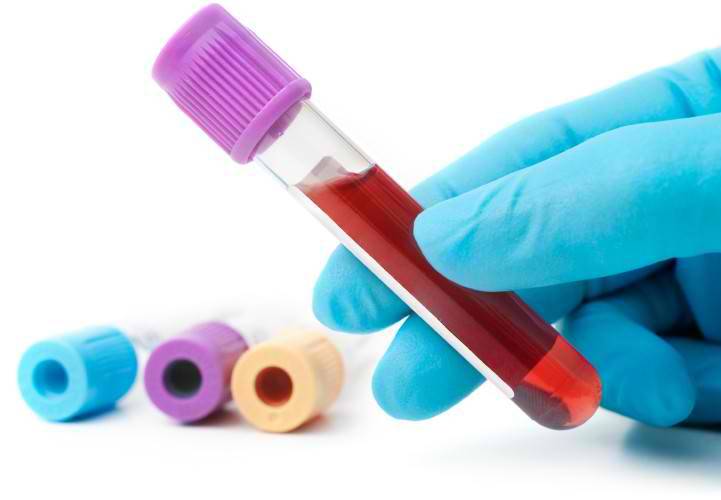Probably one of the toughest moments could be waiting for your doctor to diagnose you with herpes, determined with the help of certain tests. Although it is possible to notice certain clear signs of herpes and understanding that you have contracted it. However, just to be on the safe side, if you, your partner or someone close to you is worried about having herpes, it is best to approach medical experts, i.e. the doctors, and get tested for the disease. Furthermore, you must understand the fact that several people have the disease without ever showing signs of it. This fact makes it risky to have blind faith in your body during having sex with many, random people.

One thing that most people do not know is that just being tested for a usual STD test does not mean you are also being tested for herpes. For instance, even if your test comes back clean, you could have herpes; for finding out if you are fine, you will need to specifically ask your doctor for a herpes blood test. Unfortunately, many professionals are not too used to seeing herpes patients, which means they themselves are out-dated when it comes to actually testing you for herpes. This matter has been explained below.
Waiting Period
Even though it is understandable that you are worried thinking that you have herpes, there is no point rushing to the doctor at once. First, you must make sure that you have waited for at least 12 weeks before seeing your doctor, since it takes that long for your body to produce antibodies for herpes. If you get a herpes blood test done before that, the results may come out negative despite you having herpes.
Tests That May Not Be What You Need
- Blood Tests for Herpes: Old blood tests could not help the doctor or the patients to identify the two different types of herpes virus. For instance, if your blood test came in positive for herpes, the doctors would not be able to tell which type it is, herpes type 1 or type 2. However, the good news is that there are new types of blood tests, all formed after the year 1999. These could distinguish the two types of herpes with ease, being 95-100% accurate. This is the reason why if your doctor happens to inform you that their hospital/clinic herpes blood tests cannot help them distinguish between the two types of herpes, you might want to consider getting yourself checked elsewhere.
- Lab Cultures for Herpes: There are a bunch of doctors who state that the only way to figure out whether or not a patient has herpes is by taking a swab from a recent sore or blister. Although this statement was true at some point, long ago, there are now ways to diagnose patients, minus any open sore or blister. Hence, do not get fooled by such statements from doctors. Chances are, if you listen to them and assume you have no herpes just because you have not grown some blisters all over, there is a 50% chance of you having herpes at that exact moment.
Some of the Names of the Incorrect Herpes Blood Tests
- Herpes 1-IgG, Herpes 2-IgG, Sigma
- HSV-1 IgG ELISA, HSV-2 IgG ELISA, Wampole Labs
- HSV-1 IgG ELISA, HSV-2 IgG ELISA, Wampole Labs
- HSV-1 and/or HSV-2 ELISA Test System, Zeus
ASHA’s Herpes Blood Test Guide
American Association of Social Health handed out a Herpes Blood Test Guide, encouraging all doctors to take a look at it. Therefore, if you wish to get yourself tested for herpes, make sure you show the guide to your doctor. In this manner, you could pick out a worthwhile and accurate blood test for yourself that will tell you exactly what you need to know. A couple of the renowned herpes blood tests happen to be:
- The Western Blot Test from University of Washington
- HerpeSelect 1 & 2 Differentiation Immunoblot from Focus Diagnostics
If your specialist directs you to visit LabCorp, make sure you get one of these tests:
- 164905: HSV-1 and HSV-2 together
- 164905: HSV-1 and HSV-2 together
- 163147: Captia HSV-2 ELISA
If your doctor wants you to go to Quest Diagnostics, you would want your test to be one of these:
- 6447x: HSV-1 and HSV-2 together
- 3636x: HerpeSelect HSV-1 ELISA
- 3640x: HerpeSelect HSV-2 ELISA
- 34534: Western Blot
Click here to see the full herpes testing toolkit from the American Association of Social Health.
Online Herpes Testing Services
One of the easiest ways to test yourself for herpes, online services maintain anonymity, alongside making sure that you do not have to run around to tens of places, just to get diagnosed. These online-ordered herpes tests cost from about $90-$150 each, a highly confidential matter between the provider and the potential patient.

 Type 1 or oral herpes occurs due to a normal cold, often passed on when engaging in oral sex. Type 2 or genital herpes occurs due to any sexual contact, acting upon the genital regions. If you happen to share towels, cutlery, and similar materials, there is a chance of you spreading the virus to others.
Type 1 or oral herpes occurs due to a normal cold, often passed on when engaging in oral sex. Type 2 or genital herpes occurs due to any sexual contact, acting upon the genital regions. If you happen to share towels, cutlery, and similar materials, there is a chance of you spreading the virus to others.